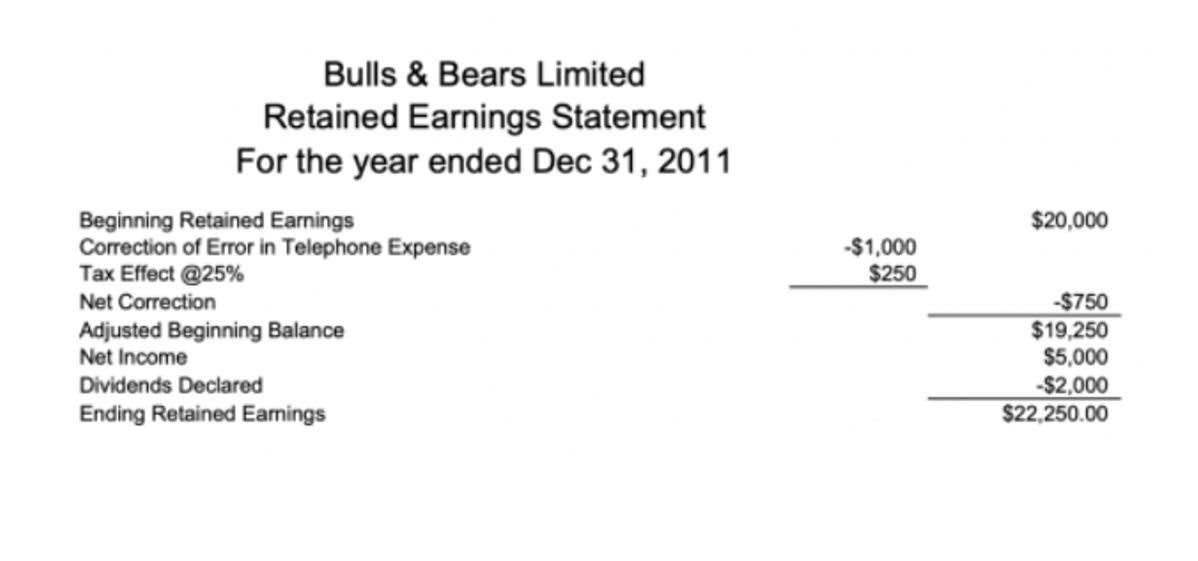
And since it takes equity, assets and liabilities — on top of expenses and income — into account, it typically gives you a more accurate financial snapshot of your business. Bookkeeping is the process of keeping track of a business’s financial transactions. These services include recording what money comes into and flows out of a business, such as payments from customers and payments made to vendors.
- This more advanced process is ideal for enterprises with accrued expenses.
- Intuit does not endorse or approve these products and services, or the opinions of these corporations or organizations or individuals.
- This is particularly true once the business accounts for its operational costs and recurring expenses.
- Accounting reports give a picture of the financial performance of a business, and determine how much tax is owed.
- Business transactions can be recorded by hand in a journal or an Excel spreadsheet.
- Small businesses often work with tax advisors to help prepare their tax returns, file them and make sure they’re taking advantage of small-business tax deductions.
Step 5: Make sure your transactions are categorized

An Italian mathematician and Francisan monk, Pacioli wrote the first popular description of the double-entry system and the use of various bookkeeping tools such as journals and ledgers. His book became the teaching tool for bookkeeping and accounting for the next several hundred years. Bookkeeping became a recognized profession in the UK and US in the 1800s. Bookkeeping is different from accounting in that it is the critical first step in tracking all business activities. While bookkeeping provides oversight into each individual transaction (in order to catch discrepancies and correct mistakes), accounting provides a thorough analysis of these numbers.
- The specific amount of an emergency fund may depend on the size, scope, and operational costs of a given business.
- By keeping track of every dollar you spend, you can gain insight into where your money is going and make informed decisions about allocating your resources.
- At the end of the course, you’ll receive a professional certificate, which you can put on your resume to demonstrate your skills and accomplishments to potential employers.
- The more information (and supporting documents) you can give your CPA at tax time, the more deductions you’ll be able to legitimately claim, and the bigger your tax return will be.
- Bank accounts allow businesses to safely store their money and make transactions easily.
You’re our first priority.Every time.
It includes importing and categorizing transactions properly, reconciling these transactions and making sure they’re recorded according to your entry system and accounting method. Bookkeeping traditionally refers to the day-to-day upkeep of a business’s financial records. Bookkeepers used to simply gather and quality-check the information from which accounts were prepared.
A free online bookkeeping course
- If you look you look at the format of a balance sheet, you will see the asset accounts listed in the order of their liquidity.
- In bookkeeping, you have to record each financial transaction in the accounting journal that falls into one of these three categories.
- Bookkeeping is the process of recording all financial transactions made by a business.
- If you’re a detail-oriented individual who enjoys working with numbers, then you might consider a career as a bookkeeper.
- Unlike accounting, bookkeeping zeroes in on the administrative side of a business’s financial past and present.
- Double-entry accounting enters every transaction twice as both a debit and a credit.
- Accrual basis accounting records those invoices and bills even if the funds haven’t been exchanged.
Assets and liabilities (like inventory, equipment and loans) are tracked separately. If you’re just starting out, are doing your books on your own and are still in the hobby stage, single-entry is probably right for you. Both accountants and bookkeepers work to maintain accurate records of finances, and sometimes the terms are used interchangeably. Generally, bookkeepers focus on administrative tasks, such as completing payroll and recording incoming and outgoing finances. Accountants help businesses understand the bigger picture of their financial situation. If you find that you have a talent for and enjoy the process, you may consider starting your own bookkeeping business providing this service to others.
The income statement is developed by using revenue from sales and other sources, expenses, and costs. In bookkeeping, you have to record each financial transaction in the accounting journal that falls into one of these three categories. The primary purpose of bookkeeping is to record the financial effects of transactions. An important difference between a manual and an electronic accounting system is the former’s latency between the recording of a financial transaction and its posting in the relevant account. Take routine bookkeeping off your never-ending to-do list with the help of a certified professional. A QuickBooks Live bookkeeper can help ensure that your business’s books close every month, and you’re primed for tax season.
Bookkeeping 101 – Business News Daily
Bookkeeping 101.
Posted: Mon, 23 Oct 2023 07:00:00 GMT [source]
Advance your career with an online degree
If bookkeeping keeps getting pushed aside as your business starts growing and you simply can’t find the time to get your books in order every month, you should consider hiring a professional to help you. If you’re going to be doing your own bookkeeping, it’s worth talking to a pro when you set up your system to make sure the accounts you create align with your industry standards and CPA expectations. Keeping an accurate, up-to-date set of books is the best way to keep track of tax deductions (expenses that you can deduct from your taxable income). Getting your books together and producing financial statements is the only way to gauge the financial health of your small business.
Chart of accounts
Your reports will look different depending on which you decide to use. You should consult your own professional advisors for advice directly relating to your business or before taking action in relation to any of the content provided. Evidence of financial record keeping has been found in Mesopotamia, Babylon, Sumer and Assyria as far back as 7000 BC.

There’s always a demand for experienced, efficient bookkeepers in nearly every industry. Companies often outsource the organization of their finances to independent professionals, then hire accountants for more complex issues and tax filing. Small businesses also manage their own accounts receivable to make sure they get paid on time for goods and services that have already been bought or rendered.
The debit column is then totalled, and then the credit column is totalled. The two totals must agree—which is not by chance—because under the double-entry rules, whenever there is a posting, the debits of the posting equal the credits of the posting. If the two totals do not agree, an error has been made, either in the journals or during the posting process. The error must be located and rectified, and the totals of the debit column and the credit column recalculated to check for agreement before any further processing can take place. QuickBooks Online users can choose QuickBooks Live Bookkeeping to get year-round access to verified experts who are focused on their success.

